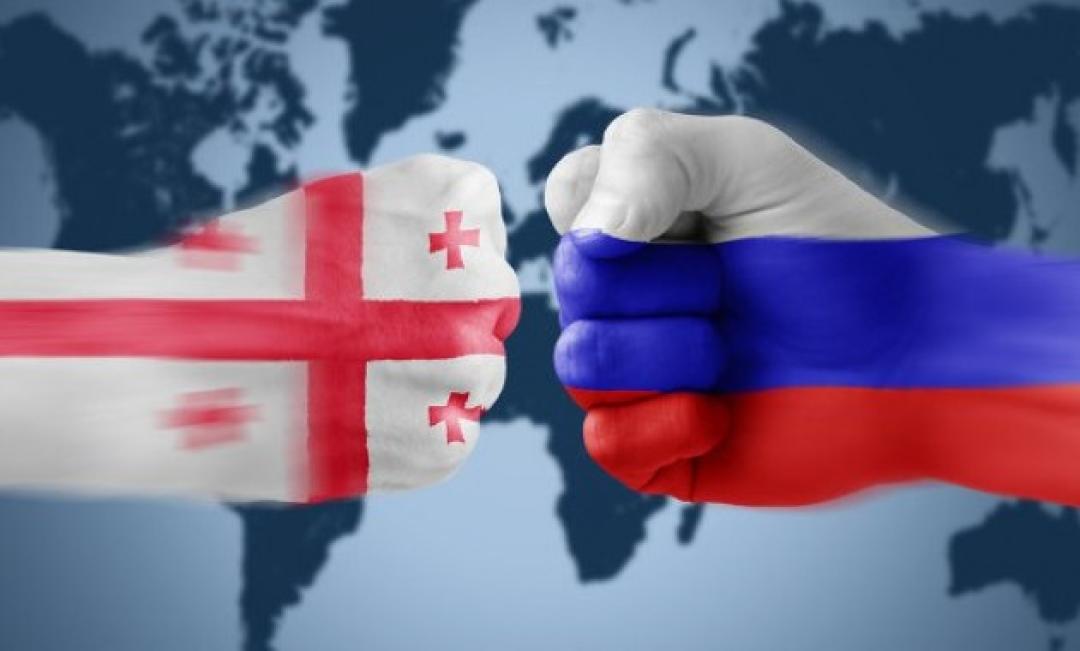
Russia Capitalizes On Narrative Put Forth by Georgian Dream to Reinforce Its Stance On 2008 War

On August 14, Dmitry Polyanskiy, Russia's Chargé d'Affaires to the United Nations, made reference to an August 13 statement from Georgia's ruling party, Georgian Dream. In the Georgian Dream (GD) party's interpretation, the 2008 war was the result of actions by the United National Movement (UNM) and former Georgian President Mikheil Saakashvili. This interpretation holds that the actions were intended to lead Russian troops into Georgia under directives from foreign powers.
The Russian diplomat promptly aligned himself with the Georgian Dream narrative, repeating it with near-verbatim accuracy during a media briefing at the United Nations Security Council, which was still in the process of discussing the situation in Georgia. Polyanskiy commenced his remarks by expressing Russia's annual bewilderment at what he described as the "obsessive" tendency of Western nations to revisit what he termed "Saakashvili's aggression against South Ossetia in 2008." He then proposed that these discussions are increasingly resembling "a masochistic exercise," particularly in light of the current stance of Georgia's government.
Polyanskiy then proceeded to quote directly from the GD Political Council's statement, which accused Saakashvili and the UNM administration of initiating the conflict. The statement read, "A significant portion of Georgian society rightfully questions Saakashvili's judgment." "The truth is that in August 2008, Saakashvili's actions were not merely the result of his unstable psyche; they were also the consequence of external instructions and a premeditated betrayal. To ensure lasting peace and stability in our nation, it is crucial for us to hold a public legal trial so that our society can finally understand who committed these treasonous acts against our country and our people."
He concluded his remarks with a pointed reminder. "Please recall these words when our Western colleagues later come to this podium and attempt to deceive you about what truly transpired during that time."
Gigi Tsereteli, the leader of the opposition party "European Georgia," asserts that the ruling party provides Russia with justification for more aggressive international action against Georgia.
As Tsereteli notes, proving Georgia's position that Russia is the occupying power and that it intervened in 2008 demanded significant effort and political struggle over many years.
"Practically the entire democratic world concurs with this assessment, as evidenced by the cases that have been adjudicated in international courts and the explicit mention of this viewpoint in the resolutions and documents of major international organizations. They urge Russia to withdraw its troops, terminate the illegal intervention and occupation, thereby enabling the internally displaced persons (IDPs) to return to their homes.
In the present circumstances, when the policy of non-recognition is effectively pursued by the Georgian government, the ruling party has launched a new, or indeed continued with an already existing, campaign against Georgia. This provides Russia with a further argument to attack our country even more actively in the international arena. Such a course of action is wholly unacceptable, damaging and contrary to our national interests," stated Tsereteli.
See Also


Mirzoyan Meets US Deputy Assistant Secretary Joshua Huck

Azerbaijani President Holds Talks with UAE and German Business Delegations on Economic Cooperation

Grigoryan Confirms Armenia’s Readiness to Dissolve OSCE Minsk Group Upon Peace Treaty Signing

Azerbaijani Official Warns of Ecological Risks to Caspian Sea, Similar to Lake Urmia and Aral Sea

